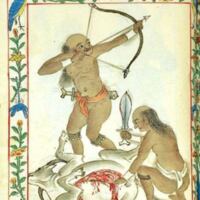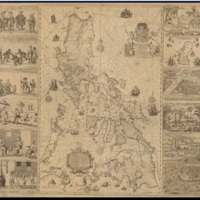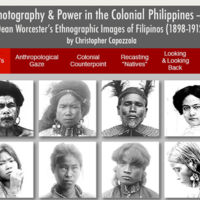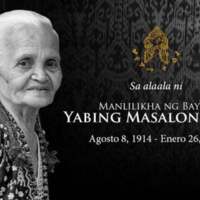Chinese-Filipino mestizo costume, 1800s
Text
Copy of one of ten hand-coloured lithographic prints of scenes and costumes in the Philippines from the volumes, along with the 8 maps contained in the atlas album.
Share this
Media
Images
Map Archival References
Metadata
Creator
By Jean Mallat de Bassilan
Publisher
Jean Mallat (1806-1863), a medical doctor, made three voyages to the Philippines, the first in 1838. His work, Les Philippines: Histoire, Géographie, Mœurs, Agriculture, Industrie, et Commerce des colonies Espagnoles dans l’Océanie, published by Arthus Bertrand, Paris, as three volumes (two volumes text and atlas) in 1846, rates probably the rarest of all 19th century French publications containing Philippine illustrated material.
Date
1 January 1846
Identifier
Origin
Materials
Physical Dimensions
Acquisition Date
Short description
Copy of one of ten hand-coloured lithographic prints of scenes and costumes in the Philippines from the volumes, along with the 8 maps contained in the atlas album.
Display status
Not on display
References
Jean Mallat de Bassilan, Les Philippines: Histoire, géographie, moeurs. Agriculture, industrie et commerce des Colonies espagnoles dans l'Océanie (2 vols), Paris: 1846, Arthus Bertrand Éd. ISBN 978-1143901140. OCLC 23424678.
Official Website
Collection
Source
Record accessed in November 2020
Copied without revision
Copied without revision
Cite this Page
By Jean Mallat de Bassilan, “Chinese-Filipino mestizo costume, 1800s,” Mapping Philippine Material Culture, accessed April 19, 2024, https://philippinestudies.uk/mapping/items/show/3963.
Geolocation
Sensitive Content
Mapping Philippine Material Culture collates digital material from institutions, and some of this material is inherently colonial and contains words, terms and phrases that are inaccurate, derogatory and harmful towards Filipino and Filipino diasporic communities. Catalogue transcriptions, book titles, exhibition titles and museum titles may contain harmful terms. We recognise the potential for the material to cause physical and mental distress as well as evoke strong emotions. Owing to the scale of the collection’s data, a process to implement sensitive-content warnings in the displayed data is still incomplete. The material within the catalogue does not represent Mapping Philippine Material Culture’s views. Mapping Philippine Material Culture maintains a strong anti-colonial, anti-racist position and affirms its support for centring the humanity of historically marginalised and disenfranchised communities.
Facebook Twitter



